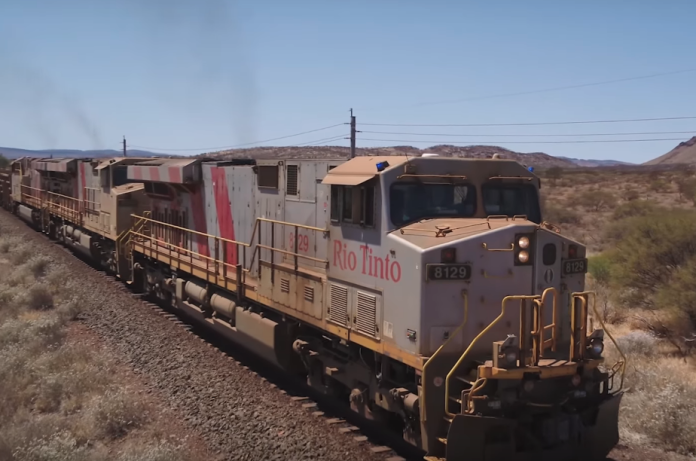
Rio Tinto has completed its maiden autonomous rail journey at its iron ore operations in the Pilbara region of Western Australia as part of the AutoHaul project aimed at automating the trains that are essential to transporting the iron ore to the company’s port facilities.
The mining giant – which operates about 200 locomotives on more than 1,700km of track in the Pilbara – said the nearly 100km pilot run was completed without a driver on board, making it the first fully autonomous heavy haul train journey ever completed in Australia.
Rio Tinto Iron Ore chief executive Chris Salisbury described the pilot run as ‘a significant step’ toward full commissioning of AutoHaul in 2018 once all relevant safety and acceptance criteria have been met and regulatory approvals obtained.
“This successful pilot run puts us firmly on track to meet our goal of operating the world’s first fully-autonomous heavy haul, long distance rail network, which will unlock significant safety and productivity benefits for the business,” Mr Salisbury said.
“Gains from AutoHaul are already being realised including reduced variability and increased speed across the network, helping to reduce average cycle times.
“Rio Tinto is proud to be a leader in innovation and autonomous technology in the global mining industry which is delivering long-term competitive advantages as we build the mines of the future. New roles are being created to manage our future operations and we are preparing our current workforce for new ways of working to ensure they remain part of our industry.”
According to the company, currently about 50% of pooled fleet rail kilometres are completed in autonomous mode (with drivers on-board) and 90% of pooled fleet production tonnes are AutoHaul enhanced.



















